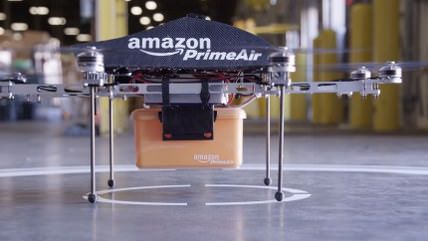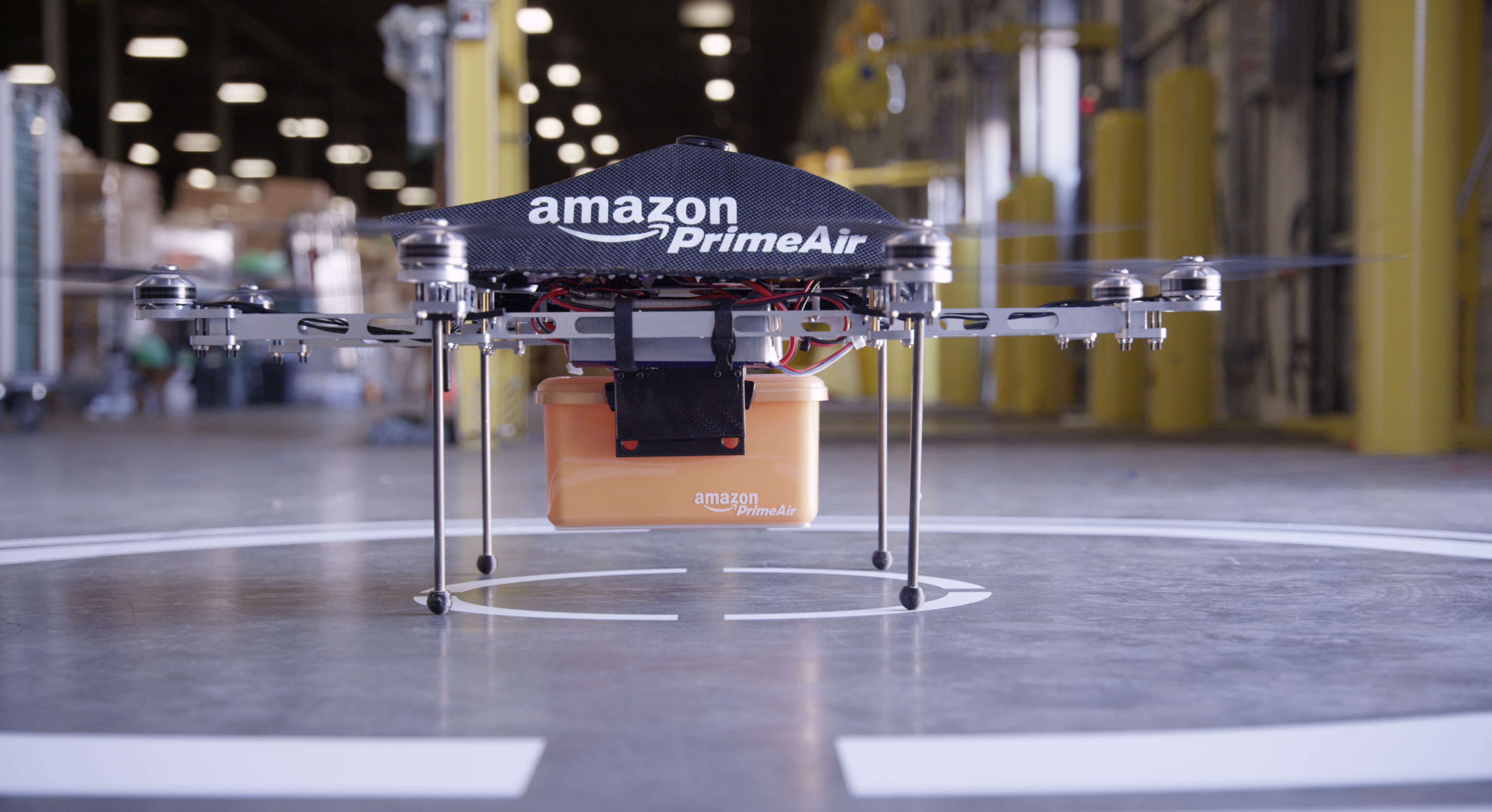Amazon Gets Permission to Fiddle with Delivery Drones, Very, Very Carefully
FAA allows them to fly during the day, with pilot and observer always watching.


When the Federal Aviation Administration (FAA) released its proposed initial rules in February for private commercial use of unmanned aircraft systems (UAS), or drones, or however we want to call them, these rules seemed to make it very, very difficult, if not impossible, for certain innovations to develop, particularly for drone deliveries. The rules permitted the use of drones only during the day and require the operator to be in visual sight of the aircraft, among other guidelines.
At the time it appeared that these guidelines would pre-empt the possibility of Amazon experimenting with drone deliveries in the United States (a vice president of Amazon actually said as much). But yesterday the FAA gave its blessing to the design of the drone the company wants to use for experimenting and trying to move this process forward:
The Federal Aviation Administration today issued an experimental airworthiness certificate to an Amazon Logistics, Inc. unmanned aircraft (UAS) design that the company will use for research and development and crew training. The FAA typically issues experimental certificates to manufacturers and technology developers to operate a UAS that does not have a type certificate.
Under the provisions of the certificate, all flight operations must be conducted at 400 feet or below during daylight hours in visual meteorological conditions. The UAS must always remain within visual line-of-sight of the pilot and observer. The pilot actually flying the aircraft must have at least a private pilot's certificate and current medical certification.
The certificate also requires Amazon to provide monthly data to the FAA. The company must report the number of flights conducted, pilot duty time per flight, unusual hardware or software malfunctions, any deviations from air traffic controllers' instructions, and any unintended loss of communication links. The FAA includes these reporting requirements in all UAS experimental airworthiness certificates.
A company like Amazon would obviously have no difficulties getting folks with a private pilot's certificate and keeping track of all this data. It's any small business-innovators that don't have the resources to comply with all the FAA's demands who are going to find it difficult to participate in this regulatory environment.


Show Comments (26)